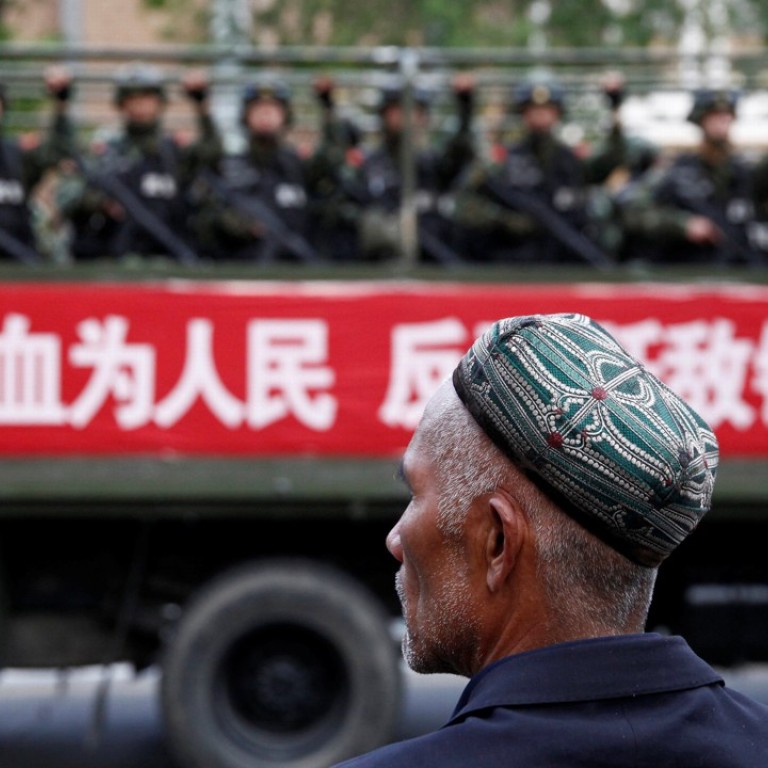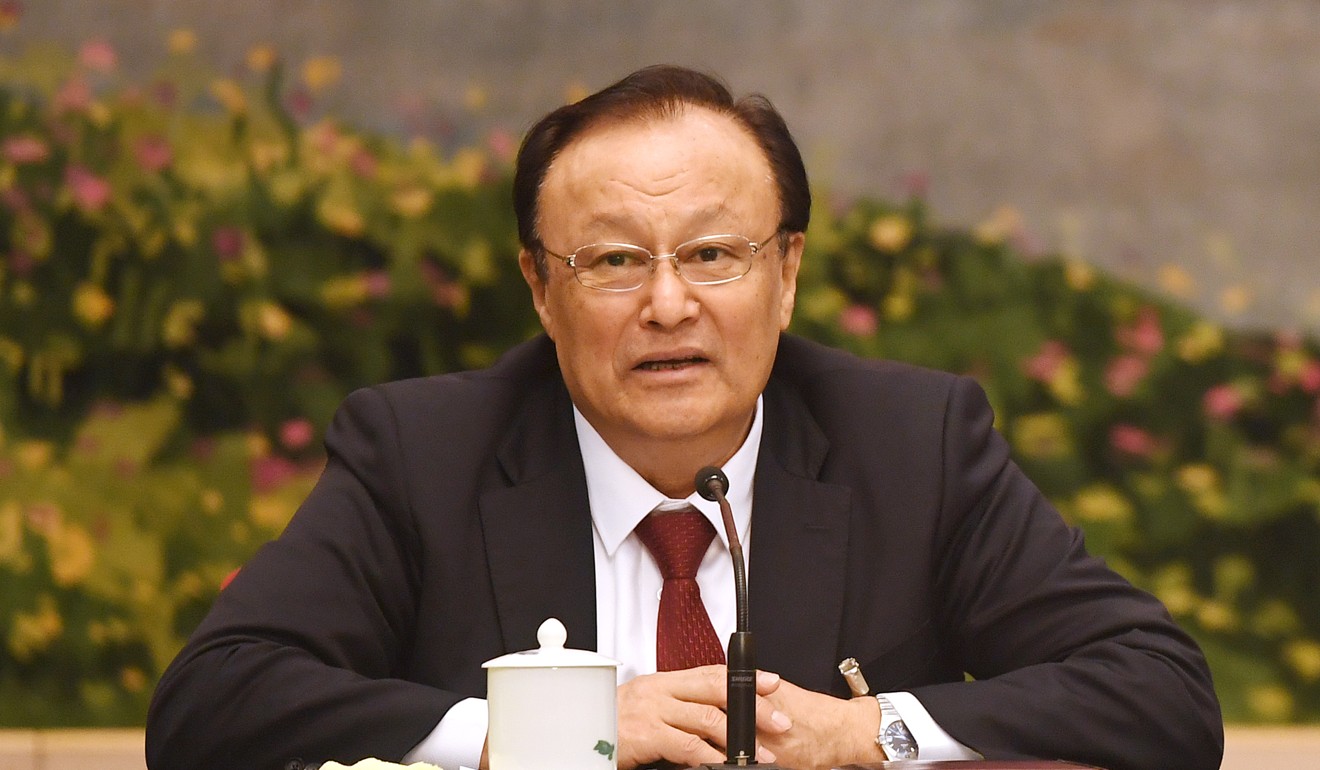
Xinjiang camps: top Chinese official in first detailed admission of ‘training and boarding’ centres
Camps for Muslim minorities provide ‘concentration training and boarding’ for those deemed influenced by extremism and suspected of minor crimes, region’s governor says
A top official in China’s far western Xinjiang region has spoken in detail for the first time about its sprawling network of internment camps, in Beijing’s latest bid to defend its mass detention of Muslim minorities against a rising global outcry.
In a rare interview with state news agency Xinhua published on Tuesday, Xinjiang governor Shohrat Zakir described the camps as “professional vocational training institutions” that focus on “the country’s common language, legal knowledge, vocational skills, along with de-extremisation education”.
The centres are for “people influenced by terrorism and extremism” who are suspected of minor criminal offences that do not warrant criminal punishment, Zakir said, without disclosing how many people had been sent to the camps, or how long they had been held there.
But he said an unknown number of “trainees” had come close to or reached the standards for completing the training and were expected to “complete their education” by the end of the year – suggesting they may soon be released.
China tries to spin positive message to counter criticism of Xinjiang policies
Zakir is the first top Xinjiang official to speak publicly about the widely criticised camps, as China comes under increasing international pressure over its mass detention and enforced political education of up to one million ethnic Uygurs and other Muslims in the area.
Maya Wang, a senior China researcher at Human Rights Watch, said Beijing’s “clumsy justifications” were clearly a response to condemnation from the international community but would not blunt criticism.
“These camps remain blatantly unlawful and arbitrary under both Chinese and international law; and the suffering and abuses of what is estimated to be one million people in them cannot be wiped away through propaganda,” she said.
In the interview, Zakir did not mention detention, but he said the institutions provided “concentration training” and “boarding studies”, with security guards monitoring the entrance.
According to Zakir, the “trainees” are taught Mandarin to improve their knowledge of modern science, Chinese history and culture. Legal studies are also required to enhance their “national and civic awareness”.
The vocational training is said to include courses aimed at teaching skills to work in factories, including garment making, food processing, electronic product assembly, typesetting and printing, hairdressing and e-commerce, with companies apparently paying for products made by the “trainees”.
How China defines religious extremism and how it justifies Xinjiang re-education camps for Muslims
Despite giving details about the language, legal and vocational training, Zakir avoided any description of what “de-extremisation education” the camps provide.
But former detainees have told international media that they were forced to denounce their faith and pledge loyalty to the ruling Communist Party.
Omir Bekali, a Chinese-born Kazakhstan citizen who was released from one of the camps, told Associated Press earlier this year that detainees were made to undergo political indoctrination, lectured on the dangers of Islam and ordered to chant, “Thank the party! Thank the motherland!” before meals.
Families of detainees have also said they were not able to contact their loved ones who had “disappeared” into the camps.

In the interview with Xinhua, however, Zakir painted a rosy picture of life inside the camps, with ample facilities such as sports venues, reading rooms, computer labs, film screening rooms and performance venues where speech, dancing and singing contests are “frequently organised”.
“Many trainees have said that they were previously affected by extremist thought and had never participated in these kinds of arts and sports activities, and now they have realised that life can be so colourful,” he was quoted as saying.
Chinese official says ‘Sinicisation’ of religion in Xinjiang must go on
The interview is the most detailed account the Chinese government has given on the internment camps, whose existence it has previously denied. As pressure from Western governments and international organisations mounts, Beijing has shifted from initial denial to active propaganda aimed at justifying the programme, framing it as a “legal” and necessary approach to save people from becoming “victims of terrorism and extremism”.
But rights advocates and legal experts say the camps have no legal basis in Chinese law, despite the government’s attempt to legitimise them.
“The fact that the Xinjiang authorities appear to be feeling the heat shows that international condemnation is working,” said Wang from Human Rights Watch. “What we need now is for foreign governments and international organisations to step up their efforts and take meaningful actions.”
The US Congress is lobbying for sanctions against Chinese officials involved in the detention camps, including the region’s party boss Chen Quanguo.
Meanwhile, the European Parliament this month called for all EU member states to bring up the subject of the mass detentions in multilateral dialogues with China, while new UN human rights chief Michelle Bachelet last month called for monitors to be allowed into the region.

